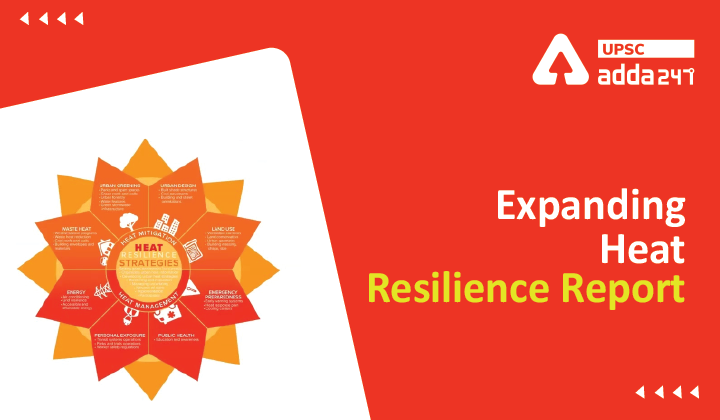Table of Contents
Heatwaves India UPSC: Relevance
- GS 1: Changes in critical geographical features (including water-bodies and ice-caps) and in flora and fauna and the effects of such changes.
Summer 2022: Context
- Recently, Natural Resources Defense Council (NRDC) has authored a new report ‘Expanding Heat Resilience across India’, where it has recommended the cities and districts to take steps to protect the vulnerable as summer builds up this year.
Expanding Heat Resilience Report: Key points
- Earlier, India Meteorological Department has reported that India has recorded its warmest March this year since 1901.
- The report also highlighted that the temperatures have touched the 40 degrees Celsius (°C) mark in March across large parts of central and western India, due to which many cities are reeling under heatwaves.
- Moreover, extreme temperatures are being recorded in Himachal Pradesh and Kerala, states with no history of heatwaves.
- The number of states affected by heatwaves stood at 28 in 2019, up from 19 the year before.
State initiatives to tackle heatwaves
- Andhra Pradesh issued heat warnings and created public awareness among the public and health workers.
- Similarly, Odisha restricted public transportation services during peak hours in the summer to limit the exposure of passengers to heat stress.
- Ahmedabad’s heat action plan of 2013 was the first such initiative developed in south Asia. It avoided 1,190 deaths a year.
Expanding Heat Resilience Report: Recommendations
- For every rupee invested in resilience, we get four rupees in economic benefits.
- Build resilience at the city level in addition to state initiatives.
- Community outreach to build awareness
- Early warning systems to alert the public
- Training of healthcare workers
- Focussing on the vulnerable population such as farmers, construction workers, traffic police
- Implementing adaptive measures such as providing drinking water, cooling centres, gardens, shade spaces during extreme heat days.
- Municipal corporations need to design programmes that tailor programmes to their communities and provide early planning, coordination, capacity building, surveillance and other measures to deal with climate change
Read current affairs for UPSC





 TSPSC Group 1 Question Paper 2024, Downl...
TSPSC Group 1 Question Paper 2024, Downl...
 TSPSC Group 1 Answer key 2024 Out, Downl...
TSPSC Group 1 Answer key 2024 Out, Downl...
 UPSC Prelims 2024 Question Paper, Downlo...
UPSC Prelims 2024 Question Paper, Downlo...
